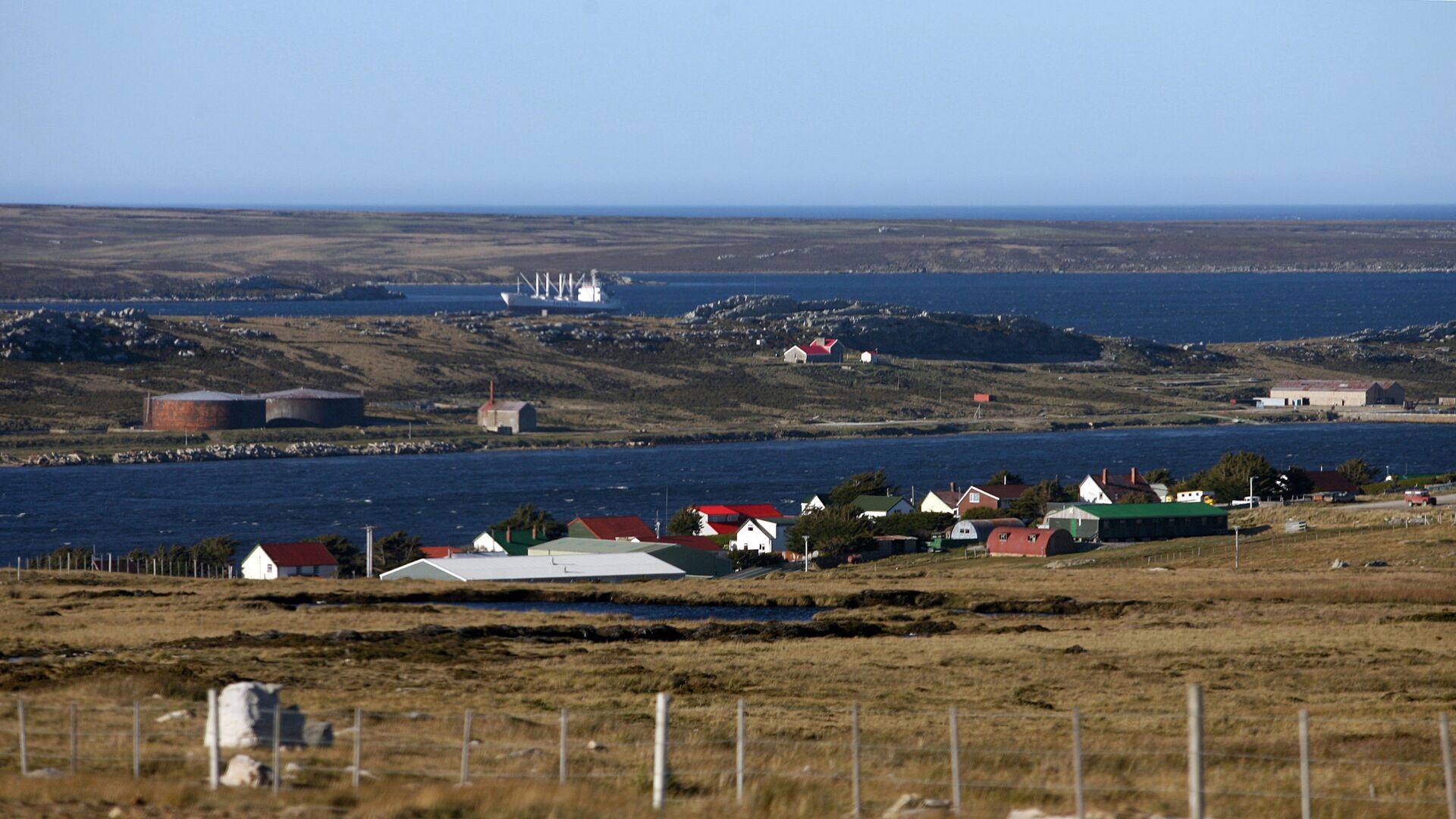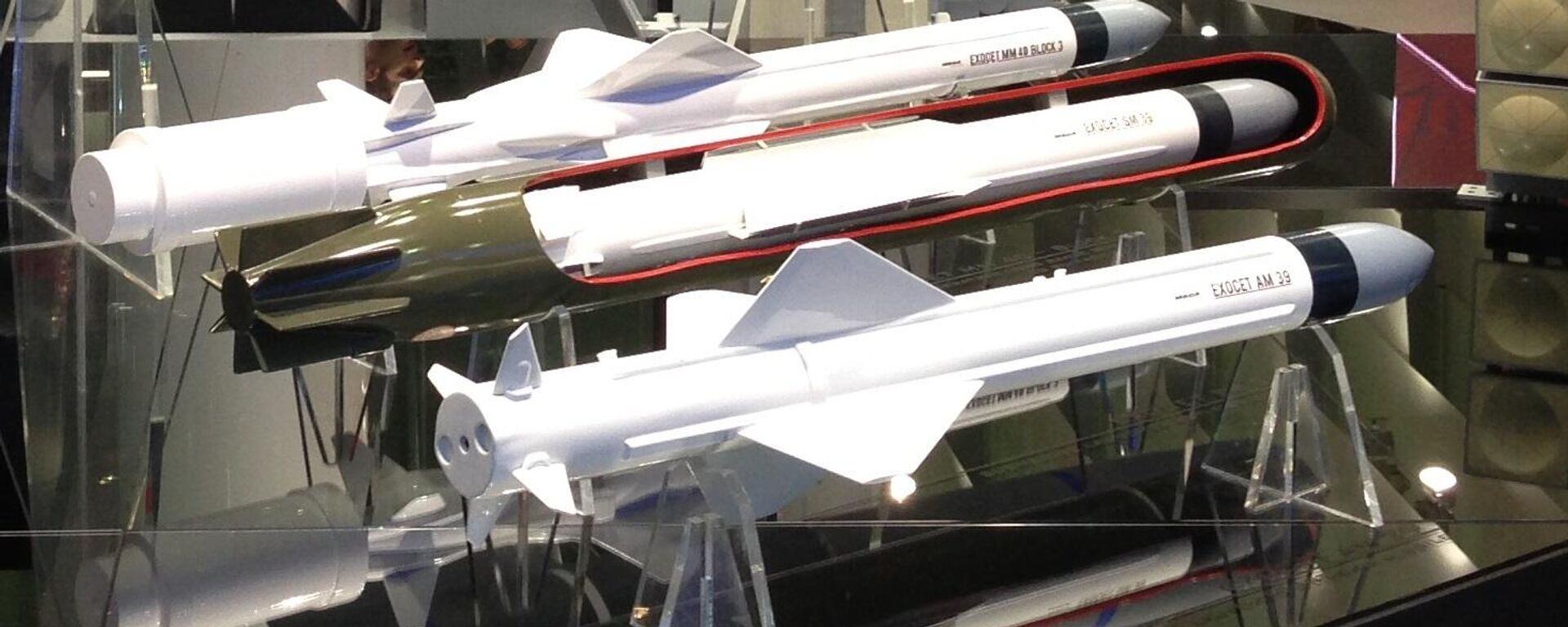https://sputnikglobe.com/20220614/uk-wanted-to-siphon-off-potential-falklands-oil-revenue-declassified-docs-say-1096300112.html
UK Wanted to Siphon Off Potential Falklands Oil Revenue, Declassified Docs Say
UK Wanted to Siphon Off Potential Falklands Oil Revenue, Declassified Docs Say
Sputnik International
Released government documents show that disputes with Argentina over oil exploration near the Falkland Islands pre-dated the 1982 war. But even a decade later... 14.06.2022, Sputnik International
2022-06-14T11:47+0000
2022-06-14T11:47+0000
2022-06-14T11:56+0000
falkland islands
https://cdn1.img.sputnikglobe.com/img/105157/84/1051578463_41:0:3429:1906_1920x0_80_0_0_5a634c518ef9fecb158703ee09d0ed60.jpg
Former PM John Major's government was wary of the charge that the 1982 Falklands war was fought for undersea oil resources — according to a declassified letter.Newly-released correspondence from between then-chancellor of the exchequer Norman Lamont and foreign secretary Douglas Hurd in 1991 shows the treasury wanted a slice of the cake from any future oil discoveries around the remote South Atlantic archipelago. "I have no doubt that in the event of a major oil find, tax revenues should accrue to the UK exchequer," Lamont wrote. "That seems to me only equitable given the very substantial financial as well as other sacrifices that the UK has made … to secure the freedom of the Falkland Islands."But the chancellor worried that it could prompt the embarrassing allegation that Britain only fought the war with Argentina for the sake of oil resources in the 200-mile exclusive economic zone around the self-governing British Overseas Territory.The exchange came nine years after dictator General Leopoldo Galtieri attempted to seize the islands Argentina still claims sovereignty over as the Malvinas. That prompted the three-month war, that left 255 British and 649 Argentine soldiers dead, but revived PM Margaret Thatcher's flagging popularity and saw a landslide Conservative victory in the 1983 general election.Lamont's concerns were codified later that year in an overseas and defence policy cabinet committee paper."If oil were to be found in commercially recoverable quantities, HMG [Her Majesty’s Government] … should take such measures as are necessary to ensure that HMG can secure access to a substantial share of the concomitant revenues," the paper read.Older documents show British interest in oil exploration around the islands, and objections to Argentina doing the same. "Our ministers are very interested in the possibility of exploiting offshore oil around the Falkland Islands," the Energy Department wrote in 1975. In 1977 the Labour government protested when Argentina commissioned seismic surveys off its own coast, and Thatcher's government followed suit in 1981 when Buenos Aires sold more exploration licenses."We must maintain that any oil in the Falkland Islands continental shelf is British, without specifying whether we mean HMG or Falkland Islands have the right to exploit it," a Foreign Office official wrote at the time. "The important point is that it is ours not Argentine."Decades of exploratory drilling around the Falklands has yet to find exploitable oil reserves, and fishing remains the islands' dominant industry.The Falklands continues to be an economic albatross around the UK's neck. The Ministry of Defence spent £215 million between 1983 and 1986 building the RAF Mount Pleasant airbase there, which also serves as the archipelago's international airport.The annual cost of maintaining a military force on the islands, including four fighter jets and a refuelling tanker, is some £60 million — or around £17,500 per year for each of its 3,400 inhabitants.
https://sputnikglobe.com/20220506/france-hid-falklands-war-kill-switch-for-argentinian-missiles-from-brits-ex-military-says-1095316538.html
falkland islands
Sputnik International
feedback@sputniknews.com
+74956456601
MIA „Rossiya Segodnya“
2022
James Tweedie
https://cdn1.img.sputnikglobe.com/img/07e4/08/1c/1080307270_0:3:397:400_100x100_80_0_0_7777393b9b18802f2e3c5eaa9cbcc612.png
James Tweedie
https://cdn1.img.sputnikglobe.com/img/07e4/08/1c/1080307270_0:3:397:400_100x100_80_0_0_7777393b9b18802f2e3c5eaa9cbcc612.png
News
en_EN
Sputnik International
feedback@sputniknews.com
+74956456601
MIA „Rossiya Segodnya“
Sputnik International
feedback@sputniknews.com
+74956456601
MIA „Rossiya Segodnya“
James Tweedie
https://cdn1.img.sputnikglobe.com/img/07e4/08/1c/1080307270_0:3:397:400_100x100_80_0_0_7777393b9b18802f2e3c5eaa9cbcc612.png
falkland islands
UK Wanted to Siphon Off Potential Falklands Oil Revenue, Declassified Docs Say
11:47 GMT 14.06.2022 (Updated: 11:56 GMT 14.06.2022) Released government documents show that disputes with Argentina over oil exploration near the Falkland Islands pre-dated the 1982 war. But even a decade later, ministers were keen to avoid linking the two.
Former PM John Major's government was wary of the charge that the 1982 Falklands war was fought for undersea oil resources — according to a declassified letter.
Newly-released correspondence from between then-chancellor of the exchequer Norman Lamont and foreign secretary Douglas Hurd in 1991 shows the treasury wanted a slice of the cake from any future oil discoveries around the remote South Atlantic archipelago.
"I have no doubt that in the event of a major oil find, tax revenues should accrue to the UK exchequer," Lamont wrote. "That seems to me only equitable given the very substantial financial as well as other sacrifices that the UK has made … to secure the freedom of the Falkland Islands."
But the chancellor worried that it could prompt the embarrassing allegation that Britain only fought the war with Argentina for the sake of oil resources in the 200-mile exclusive economic zone around the self-governing
British Overseas Territory.
"We would not want to give credence to the accusation that our Falkland Islands operation was motivated by a belief that there was oil to be found in Falklands waters, which would be quite untrue," Lamont stressed.
The exchange came nine years after dictator General Leopoldo Galtieri attempted to seize the islands Argentina
still claims sovereignty over as the Malvinas. That prompted the three-month war, that left 255 British and 649 Argentine soldiers dead, but revived PM Margaret Thatcher's flagging popularity and saw a landslide Conservative victory in the 1983 general election.
Lamont's concerns were codified later that year in an overseas and defence policy cabinet committee paper.
"If oil were to be found in commercially recoverable quantities, HMG [Her Majesty’s Government] … should take such measures as are necessary to ensure that HMG can secure access to a substantial share of the concomitant revenues," the paper read.
"Should the Falkland islanders be the exclusive beneficiaries of what might be comparatively enormous wealth?" it asked, concluding that: "We should only seek access to oil-related revenues when it is clear that the financial benefits will outweigh the political difficulties."
Older documents show British interest in
oil exploration around the islands, and objections to Argentina doing the same.
"Our ministers are very interested in the possibility of exploiting offshore oil around the Falkland Islands," the Energy Department wrote in 1975.
In 1977 the Labour government protested when Argentina commissioned seismic surveys off its own coast, and Thatcher's government followed suit in 1981 when Buenos Aires sold more exploration licenses.
"We must maintain that any oil in the Falkland Islands continental shelf is British, without specifying whether we mean HMG or Falkland Islands have the right to exploit it," a Foreign Office official wrote at the time. "The important point is that it is ours not Argentine."
Decades of exploratory drilling around the Falklands has yet to find exploitable oil reserves, and fishing remains the islands' dominant industry.
The Falklands continues to be an economic albatross around the UK's neck. The Ministry of Defence spent £215 million between 1983 and 1986 building the RAF Mount Pleasant airbase there, which also serves as the archipelago's international airport.
The annual cost of maintaining a military force on the islands, including four fighter jets and a refuelling tanker, is some £60 million — or around £17,500 per year for each of its 3,400 inhabitants.



